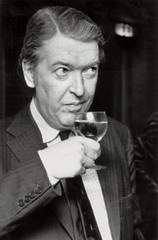 Excerpting Kingsley Amis’ Everyday Drinking at length in any discussion thereof is both crucial and inadequate: crucial because nothing anyone could say about it would be as entertaining as the text itself, and inadequate because the only way to convey how consistently funny it is would be to reproduce the book verbatim.
Excerpting Kingsley Amis’ Everyday Drinking at length in any discussion thereof is both crucial and inadequate: crucial because nothing anyone could say about it would be as entertaining as the text itself, and inadequate because the only way to convey how consistently funny it is would be to reproduce the book verbatim.
In their persistent humor and charm and their seeming effortlessness, these essays remind me of the best of Twain’s.
You may have come across a condensed version of Amis’ hangover recovery advice in the Daily Mail a couple years ago. I enjoyed it at the time, but now, having read that section of the book in full, I’m aghast that so much was lost in the cutting. Couldn’t the editors have omitted some of the day’s news instead?
Amis advocates a two-pronged approach to hangover recovery: the physical, and the metaphysical. The third step in his treatment of the metaphysical hangover (M.H.) entails embarking on either the M.H. Literature Course or the M.H. Music Course, or, if necessary, both in succession. “The structure of both Courses … rests on the principle that you must feel worse emotionally before you start to feel better. A good cry is the initial aim.”
Amis’ Rx for hangover reading:
Begin with verse, if you have any taste for it. Any really gloomy stuff that you admire will do. My own choice would tend to include the final scene of Paradise Lose, Book XII, lines 606 to the end, with what is probably the most poignant moment in all our literature coming at lines 624-6. The trouble here, though, is that today of all days you do not want to be reminded of how inferior you are to the man next door, let alone to a chap like Milton. Safer to pick someone less horribly great. I would plump for the poems of A.E. Housman and/or R.S. Thomas, not that they are in the least interchangeable. Matthew Arnold’s Sohrab and Rustum is good, too, if a little long for the purpose.
Switch to prose with the same principles of selection. I suggest Aleksandr Solzhenitsyn’s One Day in the Life of Ivan Denisovich. It is not gloomy exactly, but its picture of life in a Russian labour camp will do you the important service of suggesting that there are plenty of people about who have a bloody sight more to put up with than you (or I) have or ever will have, and who put up with it, if not cheerfully, at any rate in no mood of self-pity.
Turn now to stuff that suggests there may be some point to living after all. Battle poems come in rather well here: Macaulay’s Horatius, for instance. Or, should you feel that this selection is getting a bit British (for the Roman virtues Macaulay celebrates have very much that sort of flavour), try Chesterton’s Lepanto. The naval victory in 1571 of the forces of the Papal League over the Turks and their allies was accomplished without the assistance of a single Anglo-Saxon (or Protestant). Try not to mind the way Chesterton makes some play with the fact that this was a victory of Christians over Moslems.
By this time you could well be finding it conceivable that you might smile again some day. However, defer funny stuff for the moment. Try a good thriller or action story, which will start to wean you from self-observation and the darker emotions: Ian Fleming, Eric Ambler, Gavin Lyall, Dick F
Add a Comment

